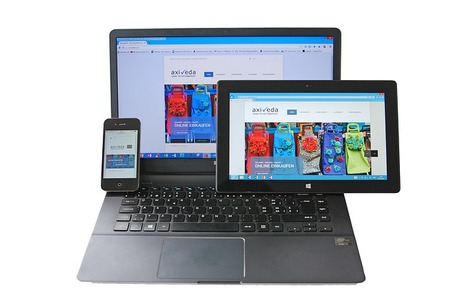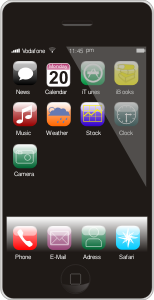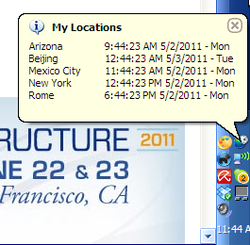|
Update 2016-07-24: Added Phonescoop glossary to Telephones > General.
A big post with lots of vocabulary lists from online dictionaries of words related to ICT (information and communication technology): telephones, computers and networks & systems like the internet, the worldwide web and e-mail. Go to the list and click on the words to see definitions, examples, pronunciation etc.
This vocabulary can be useful for our classes on: using the telephone, mobile phones, technology, office work, digital marketing, innovation, e-mail, communication etc.
0 Comments
When talking on the phone or over the internet, sometimes it's necessary to spell a word or name. You need to be able to say the names of the letters used to write the word or name (if spelling a Chinese name, that means you need to give the letters of the pinyin). This is especially important when you're saying a name the other person might not be familiar with, for example telling a surname or address from a language they don't speak, like a Chinese name for a foreigner.
Here's how I'd spell my name.
But the names of the letters are very short and many are quite similar to each other. So sometimes the person listening on the phone or over the internet cannot hear them properly, especially if there's a bad connection or it's noisy.
To avoid confusion & mistakes, it's common to add another word or name that begins with that letter.
You can use the following structure.
Here's how I could spell my name to make it extra clear exactly what the letters are.
You can use any word or name (although it's better not to use ones that will be difficult for the listener, or that are too short). But there are also standard systems for the choice of word, called spelling alphabets.
The most common is the ICAO (or NATO) spelling alphabet. Here's a table showing the letters and the word to represent each letter.
Using the ICAO alphabet, I'd say:
Here's a useful website where you can type in a word or name and it gives you the spellin in ICAO spelling alphabet.
So remember, when spelling your name, address or other word on the phone, try using a spelling alphabet to make it very clear and to avoid problems.
Update 2017-10-08: Added Culips Chatterbox # 114, ESL Library and Podcasts in English 2.126. 2017-10-05: Added Culips Chatterbox #195 & vocab links. 2017-05-23: Fixed link for ESL Podcast #837. 2016-12-22: Changed ESLPod links to Lizhi.fm. See ESLPod Links Broken. Added ESL Podcast #203. 2016-07-22: Added DrewsESL.
Here are some audio exercises and podcasts for English learners on the topic of mobile phones / cell phones.
Podcasts
Audio + exercises
Today I've done quite a bit of work on my ESL Links > Telephone English page.
I got rid of some dead links, reorganized others, and added some new ones, like the British Council page on conference calls, Business English Pod (including lessons on taking and leaving messages), BBC Business Language to Go and TalkEnglish page on business phone calls.
UPDATE 2017-3-6: All ESLPod.com links changed to Lizhi.fm. For more info, see this post: ESLPod Links Broken. Update 2016-5-22: Added several more BEP podcasts and 1 more ESLpodcast.  In our course on Business Communication, we have a class on telephoning, with topics like answering the phone, leaving/taking messages, setting up & changing appointment, making/respondng to complaints etc. Here are some useful ESL podcasts you can listen to about making business phone calls. ESL Pod ESL Pod has lots of useful podcasts for intermediate & upper-intermediate learners. Usually a short conversation followed by explanation of the words, idioms & ideas; followed by the conversation again at normal speed for native English speakers. Business English Pod (BEP) Business English Pod has many podcasts for learning business English, some for advanced learners, some for intermediate learners. The audio is free. For some podcasts, you have to pay for other resources, but others might have free resources like "Quiz & Vocab".
More Telephone English I also have a few more links for telephone English here on my website, mostly shorter exercises for beginner and intermediate levels.
Question from my Hiknow student Vicky: Dear Joe, Soon I'll have a telephone interview with a headhunter. I am a little nervous about it, so I want to know if I should do some preparation for the interview and which aspects I must be careful about. Looking forward to your reply. Thanks! Answer: Great to hear you've got an interview. I've posted some links to useful job interview tips on my blog. However those aren't specifically for phone interviews. Here are a few useful lists for preparing for phone interviews:
With communications technology like the Internet and the telephone system, people in different places, cities, countries, continents and time zones can talk to each other.
My students do it when they have conference calls with customers, suppliers or colleagues in other countries. I do it every time I give a class online. So this is an issue that affects all of us. I just found an article with tips on making these communications successful, from GigaOM, a website focused on online business.It includes some things I already knew or use, like an international time Meeting Planner, to help me check time in China (where my students are) and Mexico (where I now live). (I also use a small free program from Microsoft called Time Zone, for Windows XP. It's a clock that can show the time in 5 different places.) It also discusses language and preparation issues, like speaking slowly and sending documents in advance. |
G.A.L.E.S.L. / joe3
Some tips and links on learning English. Categories
All
Archives
June 2017
|






 RSS Feed
RSS Feed

